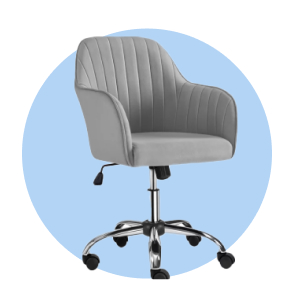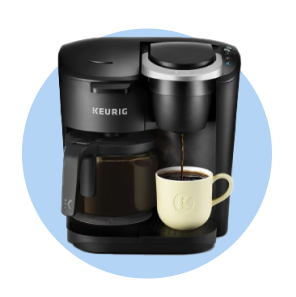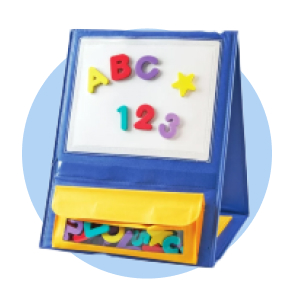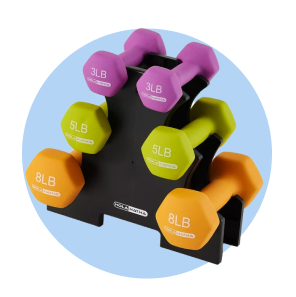
4 Questions to Ask Before Buying an Office Scanner
Digitizing documents makes information safer & more accessible
Digitizing original paper documents into digital PDFs can transform densely packed filing cabinets into searchable knowledge bases—and more available office space. Organizing and labeling your company's media and documents with the appropriate metadata can seamlessly blend convenience and security by creating more accessible conditions to data for those who need it while simultaneously restricting unwanted access. You’ll need a scanner that can keep pace with your workflow, but with so many to choose from, it can be challenging to zero in on the model that’s best suited to your business.
Finding the best office scanner for your business doesn’t have to be overwhelming. Ask yourself these three questions and you’re well on your way to getting some invaluable equipment.

What are you scanning?
Evaluating your company’s office scanner needs means considering the variety of materials that get digitized in each department.
Scanned materials can come in all shapes and sizes. Photos for the company newsletter, ID cards and legal documents for HR and customer correspondence—the list of what your business might scan goes on and on. The kind of scanner you select should suit the kind of document you’re trying to capture.
Departments working with photos or delicate documents will be best served by a flatbed scanner. Scanning each piece individually takes more time, but prevents damage or creasing. On the other hand, someone creating digital versions of invoices who doesn’t have to worry quite as much about fragility would appreciate the speed of a scanner with a document feeder. If you need to scan anything thicker than a passport, like a book, an overhead scanner is the way to go. These types of office scanners also include optical character recognition (OCR) technology, which can convert images into editable text—perfect for manipulating textbooks and other reference materials.
You naturally want your scans to be as clear as possible, but again, what you’re scanning makes a big difference. 200 pixel per inch (PPI) scans will provide enough quality and clarity for standard scan capturing especially for anything internal, like news and announcements. 600 PPI is preferable for photos or anything that needs to be especially crisp and clear, including smaller text and images.
Film slides and negatives or anything small like a postage stamp may require higher resolution capabilities in the 4,000 PPI range. Be sure to check office scanner product claims against your company’s specific needs carefully.
The higher the resolution, the better the scanning quality. The lower the resolution, the less time and resources it takes. Consider the relationship between quality and speed while also finding the right balance for your business needs.

How much are you scanning?
One of the most important details to note when you’re shopping for scanners is each model’s pages per minute (PPM), which is a measure of how quickly it works. Office scanners with bigger, double-digit PPM ratings are ideal for highly digitized offices scanning high volumes of documents, but might not be as necessary for an office that only needs to capture a few scans in a typical day. Take note of the PPM for black and white printing versus color: black ink combined with a lower DPI rating will have less clarity but will always take less time to complete.
Where will it go?
There’s nothing worse than ordering an important piece of equipment for your office only to discover it’s an inch too big for the cubby where you intended to put it. Think about where this scanner will live in your office, and measure the height, width and depth of the space. Also consider foot traffic; if someone is standing at the scanner to use it, are they blocking other workers? If the scanner will be in an area with a number of employees, you may need to think about how noisy it is.
It’s not only the size of the machine itself to consider, but also the size of the materials your employees will be scanning. The units you purchase for your office need to have the necessary room for all scanning jobs without folding or damaging them.
Be sure your business has the space it needs to process legal documents, letters and all other sensitive or delicate office media. Flatbeds with automatic document feeders often have the necessary room for the largest documents but the scan size area should be verified prior to purchase in case it isn’t large enough for your company’s needs.

What are your security needs?
Connecting office scanners to the company network—via Ethernet or WiFi—for better access is just the beginning of office scanner connectivity efficiency.
Office scanners can extend their usefulness even further to employees by consistently being available wherever employees find themselves working. From digitizing important documents while working remotely from home to immediately sending over signed contracts from clients—giving employees the ability to scan media from anywhere makes it easier to get work done.
Access comes with risk, however. An unsecured scanner can be an entry point for bad actors looking to steal valuable financial or personal data. Make sure to choose a scanner that contains industry-standard data encryption. Scanners made in partnership with trusted tech security brands are a good complement to your company’s internal security measures.
Scan more savings with Walmart Business
Walmart Business has office accessories, printers and scanners that can all help your business put ink to paper more smoothly.
Already have an account? Upgrade to a Walmart Business+ membership and enjoy free shipping with no order minimum.1 You’ll also get free delivery from local stores on orders over $352 and 2% back in Walmart Business Rewards on orders of $250 or more.3 That could add up to over $500 in every year.4 Click here to learn more.


Limited-time offer
Unlock your special promo code
Stay informed on Walmart Business news & get $20 off a $100 purchase!1
1Minimum order of $100. Promo code can be used one time & may not be combined with other offers. Offer not transferable & void where prohibited by law. Customer responsible for all applicable taxes. Offer expires 12/31/2025 at 11:59pm PT. Further restrictions apply. See terms at checkout for details. Promo code offers available in limited quantities. While supplies last.
1 Excludes most Marketplace items, freight and certain location surcharges.
2 Restrictions apply.
3 Rewards can only be used toward future purchases on Walmart Business. Additional terms apply.
4 Savings based on 1 free $35+ delivery order vs. $9.95 fee and 1 free shipping order under $35 vs. $6.99 fee biweekly, plus 2% Walmart Business Rewards on monthly order >$250 (average value of $400).
Exciting news awaits
Hear firsthand about new products, features & promotions.
By clicking submit, you agree to receive emails about Walmart Business and acknowledge you have read and agreed to our Terms of use and Privacy Policy.










